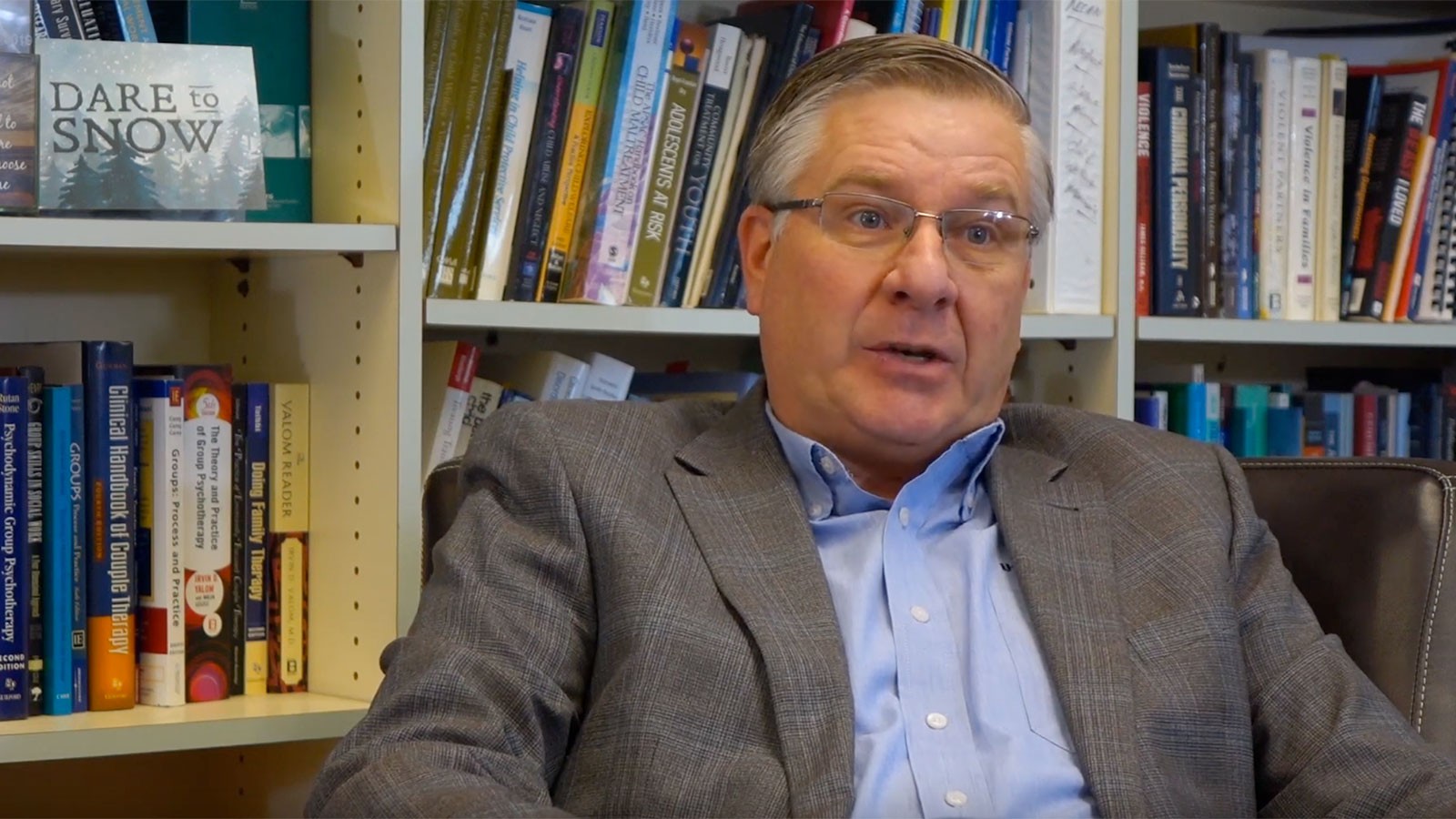$3.5 Million Gift to Utah State Will Accelerate Cutting Edge Mind-Body Wellness Work
Derrik Tollefson, professor and head of the Department of Sociology, Social Work and Anthropology at USU, is the inaugural holder of the Block's professorship that will further research and teaching of a cutting-edge mind and body therapeutic technique capable of having a profound impact on the wellness of Utahns and the global community.
A generous gift of $1.5 million to Utah State University will establish a professorship in the Department of Sociology, Social Work and Anthropology that will further research and teaching of a cutting-edge mind and body therapeutic technique capable of having a profound impact on the wellness of Utahns and the global community.
The Charitable Gift Annuity from Stanley H. Block, M.D., and his wife, Carolyn Bryant Block, has established a professorship in their name with the inaugural holder of the professorship being Derrik Tollefson, professor and head of the Department of Sociology, Social Work and Anthropology at USU.
“This generous gift significantly strengthens the I-System Institute for Transdisciplinary Studies and makes possible the first named professorship for the Social Work program,” said Tollefson, who leads the institute, home of USU’s Mind-Body Bridging (MBB®) therapeutic method of connecting mind and body to achieving wellness. “The Blocks’ continuing commitment to USU means students will have access to training and workshops on MBB for a long time to come, and our work in resilience training with students ranging from elementary school children to adults will go from development stage to full implementation.”
The additional $2 million will go toward the I-System Institute for Transdisciplinary Studies at USU. In 2018, more than $1.1 million in gifts from the Blocks led to the founding of the institute. Housed within the Department of Sociology, Social Work and Anthropology, the institute provides a public service to USU students and to larger communities through outreach of education, training and research using the I-System Model of Human Behavior.
The I-System Model, which provides the foundation for Mind-Body Bridging, was developed by the Blocks in the late 1990s to optimize health, wellness and human performance. The I-System model employs individual and collective psychosocial human functioning in achieving a holistic approach to healing and wellness.
USU’s Mind-Body Bridging program techniques have shown to have dramatic results in improving depression, fatigue, pain, Post Traumatic Stress Disorder (PTSD), cancer survivors’ well-being, addictions and helping reduce recidivism rates for perpetrators of domestic violence.
“The MBB approach to wellness isn’t geared to any specific area. It can be applied to everyday people and has shown to be successful in improving one’s mindfulness and helping us be more creative as problem solvers,” Tollefson added. “The applications are relevant and effective with parents, teachers, athletes and corporate professionals. There is no limit to where this model can be applied. A project conducted with minority communities suggests MBB could be an effective tool for achieving improved health among racial and ethnic minority populations.”
Since 2018, Mind-Body Bridging developers Stanley and Carolyn Block have contributed nearly $4.7 million to USU’s I-System Institute for Transdisciplinary Studies, in addition to valuable intellectual property, to further research and teaching of a therapy technique they believe will benefit the well-being of humankind on a global scale.
“Furthering the benefits of Mind-Body Bridging has tremendous potential to improve the wellness and productivity of people in all walks of life,” Stanley Block said. “These gifts will advance the I-System Institute’s potential to address collective issues such as racism, social injustice and conflicts between opposing groups and nations.”
The Blocks’ and Tollefson’s newly released book, Social Unrest: Resolving the Dichotomies of Me/You and Us/Them, delves deeper into Mind-Body Bridging by challenging how humanity traditionally attempts to solve human problems.
“The book examines how traditional attempts to ‘fix’ human problems are symptomatic of the very problem they would attempt to eradicate,” Tollefson, a co-author with the Blocks, said. “The dualities of good and evil behaviors can’t be fully resolved with dualistic-based solutions such as light eliminating darkness. The solution to good and evil behaviors rests upon resolving the human tendency to construct a separate sense of self that divides the world into ‘me against you,’ or ‘us against them.’”
College of Humanities and Social Sciences Dean Joseph Ward said the Blocks’ most recent gifts further the work of the I-System Institute and its MBB program very closely addresses USU’s stated mission.
“These incredibly generous gifts from Stan and Carolyn Block to the I-System Institute will advance USU’s mission to put research in the service of improving the lives of people throughout Utah and the wider world,” Ward said. “Through these gifts, the Blocks are expanding the research and teaching of Mind-Body Bridging therapy, which aligns with the university’s goal of serving the public through learning, discovery and engagement.”
A generous gift of $3.5 million from Stanley H. Block, M.D., and his wife, Carolyn Bryant Block, strengthens the I-System Institute for Transdisciplinary Studies and makes possible the first named professorship for the Social Work program.
The I-System Institute for Transdisciplinary Studies at USU was established in 2018 thanks to $1.1 million in gifts from the Blocks. Housed within the Department of Sociology, Social Work and Anthropology, the institute provides a public service to USU students and to larger communities through outreach of education, training and research using the I-System Model of Human Behavior.
CONTACT
Janette Robbins
Associate Vice President of Strategic Communications
Advancement
janette.robbins@usu.edu
TOPICS
Research 874stories Society 501stories Grants 228stories Wellness 161stories Teaching 151stories Giving 81stories Sociology 49storiesComments and questions regarding this article may be directed to the contact person listed on this page.









